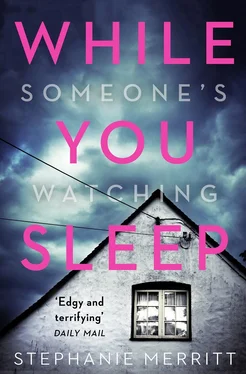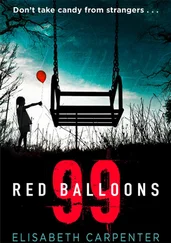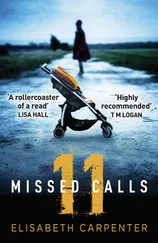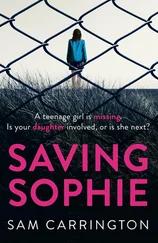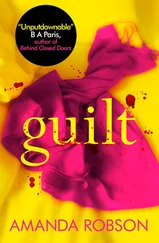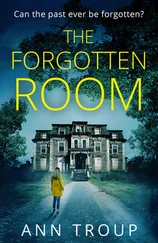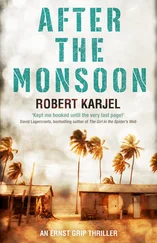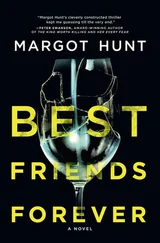‘Have you always lived here?’ she prompted, when he seemed in danger of running out of talk. He slid her a sideways look and she sensed that a certain wariness had descended.
‘Born and bred,’ he said. She was not sure if the note in his voice was pride or resignation. ‘Got away as soon as I could, mind. All the young ones do. But my mother passed away five years back and my da couldn’t manage the pub on his own, he was getting on, you know? So I came home. Brought my wife and daughters with me.’ He heaved a deep sigh. ‘Sometimes a place is in your marrow. It pulls you back. Nothing you can do about it.’
‘Uh-huh.’ Zoe nodded. ‘My grandmother came from this part of the world, actually.’
‘Is that right?’ He eyed her with greater approval. ‘So you’ve come in search of your roots?’
‘Something like that. I guess my Scottish blood’s pretty diluted by now. She married an Englishman. My mother grew up in Kent. I was born there too.’
‘I’d keep that quiet round here, if I were you.’ He winked. ‘You don’t sound like you’re from Kent.’
‘We moved to the States when I was a kid. My dad’s from Boston.’ She wrapped her arms around herself; the thought of her father speared her with a sudden pang of longing. No use thinking of that now. She forced a brightness into her voice, changing the subject. ‘So did the house always belong to your family? The one I’m staying in?’
Again, that slight hesitation, the flicker of a glance, as if he suspected her of trying to catch him out.
‘Aye.’ It looked as if this was the extent of his answer, but as they approached a turning with a painted sign at the entrance showing a white stag on the crest of a hill, he cleared his throat. ‘But it didn’t come to me until my father passed on last year.’
‘Oh, I’m sorry,’ Zoe said automatically. ‘About your father.’
‘Aye, well, he was eighty-seven and still working, more or less – that’s no a bad run.’ Mick sniffed. ‘But he’d let the house go over the years. They all had. Took a lot of work to make it fit to live in. Don’t get me wrong’ – he turned to her with that same anxious expression – ‘it’s all good as new – better. I did most of the work myself – that’s what I used to do, down in Glasgow, you know – restore houses. It’s lovely now, though I say so myself. Well, you’ll have seen the photos on the website. They’re no Photoshopped or any of that,’ he insisted, a touch defensive.
‘It looks beautiful. You didn’t want to keep it for your family home?’
He snapped his head round and his eyes narrowed. Then his face relaxed and he laughed, almost with relief. ‘Too far out for us. We stay here, above the pub. That way we’re on hand if there’s any problems. And the girls can walk to school in five minutes. That’s the only reason,’ he added, as if someone had suggested otherwise. ‘No sense in making life more complicated.’ He indicated the building in front of them, a whitewashed inn of three storeys with gabled windows in the roof. The car park outside was busy, and as he switched off the engine, Zoe heard music and laughter drifting through the clear air. ‘But if it’s peace and quiet you’re after, it’ll be perfect for you.’
He was trying too hard, Zoe thought. Perhaps there was something wrong with the house after all. It had looked so idyllic on the website; eccentric, as if the original architect had thrown at it all the excesses of the Victorian Gothic and hoped for the best. From the pictures she had seen, the interior was tastefully restored and minimally furnished, but what had really hooked her was the light. The photographs had been taken in summer, but even in sunshine there was a bleakness to the island’s beauty that had whispered to her, stark bars of cloud lending shadow and depth to the sky. A veranda ran around the west and south sides of the house, overlooking an empty strand of sand and shingle, marked only by coarse clumps of seagrass, tapering down to a small bay that gave on to the vast silvered expanse of the Atlantic. The house was set a little way back from the beach, built into the slope of the cliff at its shallowest point, while a ridge of rock rose up behind, as if to protect it from prying eyes. She had noticed the quality of the light with a painter’s eye, and known with some instinct deeper than thought that she needed to wake under that sky, to the sound of that empty ocean and the seabirds that wheeled and screamed above it, if she was ever going to find her way back. Whether some ancestral tug in the blood had drawn her there, she could not say. She had only felt a certainty, on seeing the house, that had eluded her for months; the knowledge that it was meant for her.
‘Peace and quiet is absolutely what I want,’ she said, but with a smile, so as not to seem antisocial.
Mick opened his door, then turned back to her. ‘The thing is, Mrs Adams – Ms – sorry, Zoe …’ He chewed his lip, unsure how to continue. ‘There’s a lot of history to this place. Legends, and so on. And a lot of families have been here for generations. So people have their superstitions, you know? Plenty of folk here have barely been off the island.’
Zoe nodded. ‘I guess that’s part of the charm.’
‘Aye, but …’ He looked uneasy. ‘It’s only – if you hear people telling tall tales, as they like to do with a drop of whisky inside them, pay them no mind. Fishermen’s yarns, old wives’ gossip – that’s all it is.’
‘Oh, I love all those folk tales. My grandmother used to tell them when we were kids. Selkies and giants and whatever.’ As soon as she’d said the words, she regretted them, picturing herself trapped in a smoky corner by some ancient mariner.
‘As long as you know that’s all they are. Bit of fun. Tease the incomers.’ Mick smiled back, but he did not look reassured. ‘Come on then, you must be gasping for a drink.’
The warmth of the pub hit her face like a blast from a subway vent, thick and yeasty, homely smelling: woodsmoke and winter food, stews, hot pastry and mulled cider. A wave of sound broke over her at the same time, a fast and furious jig from the band, accompanied by raucous singing, foot-stamping and the banging of beer mugs, so that for an instant Zoe felt overwhelmed by the force of it, the noise and heat and smell of so many people crammed into a lounge bar designed for half their number. She stood very still, one hand to her temple as if her head were fragile as an eggshell, and closed her eyes as the weight of her jet lag settled inside her skull. When she opened them, every head had swivelled to stare at her. She allowed her gaze to travel the room, taking in the questioning faces – no hostility in them, as far as she could see, most had not even missed a breath in their singing – and felt her own expression freeze into a tight little smile, fearful of offending. She cast around for Mick with a flutter of alarm, until she realised he had flipped open the bar and taken up a position of natural authority behind it. He beckoned her over and pushed a heavy crystal tumbler across the polished wood. A generous measure of Scotch glowed honey-gold, with no ice.
‘Get this down you,’ he said in a low voice. ‘Put some colour in your cheeks.’
Zoe lifted the glass to her mouth and breathed in peat and smoke, ancient scents, the land itself. The heat slid down her throat and uncurled through her limbs. Behind her eyes the headache intensified briefly, then began to melt away. She set the glass down on the bar and Mick immediately refilled it, with a wink.
‘That’s my Kaye there,’ he said, nodding to the makeshift stage where the band were building to a crescendo. Zoe turned to look. The singer was a buxom woman dressed younger than her age, in drapey black skirts and a black lace top, her long pink hair bright and defiant. She sang with her eyes closed, a fist wrapped around the microphone, one foot in floral Doc Martens pounding the stage to the beats of the bodhran, her voice bluesy and hard-edged, smoke and whisky. Though Zoe could not make out the words, she surmised from the ferocity of the singing that it was some kind of nationalist rebel song, and that the anger soaked through its lyrics was still keenly felt by a good many of the patrons.
Читать дальше
